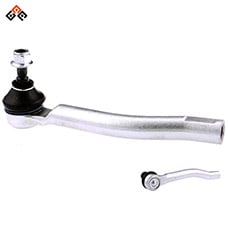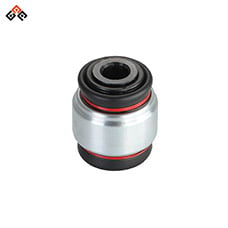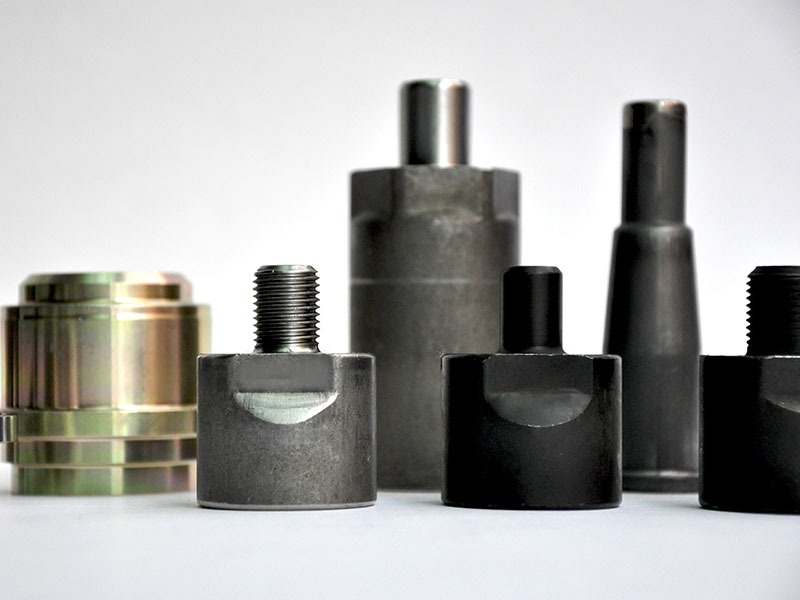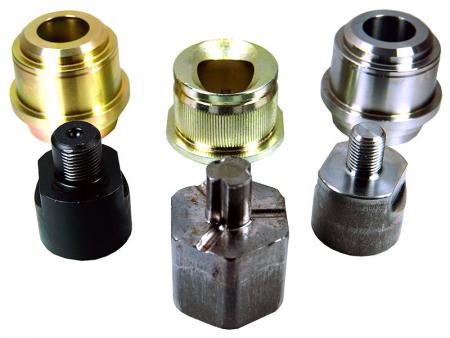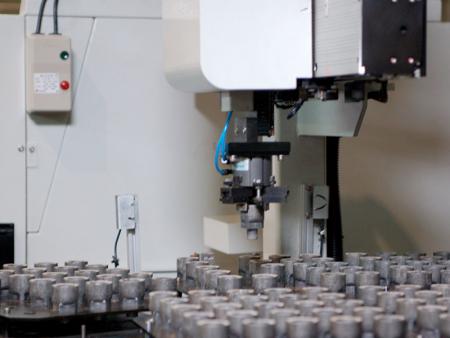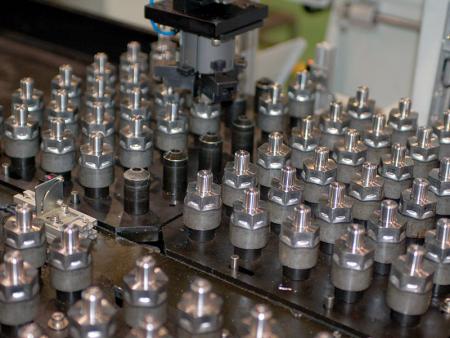Customized CNC Machining on Housings of Tie Rod End, Rack End, Ball Joint and Sway bar link
CNC (Computer Numerical Control) machining represents a revolutionary shift in the way automotive components are manufactured. This technology not only speeds up the manufacturing process but also reduces errors significantly, enhancing both the quality and reliability of automotive parts. CNC machining emerges not just as a method, but as a revolution in precision engineering.
This advanced technology brings accuracy to the crafting of steering and suspension components, such as tie rod ends, rack ends, ball joints, and sway bar links—each piece crucial for the vehicle’s stability and handling prowess. This advanced manufacturing technique leverages computer numerical control (CNC) technology to sculpt, mold, and refine metals and composites with surgical precision. Gone are the days of solely manual labor and prototyping; CNC machining introduces an era where digital designs spring to life with accuracy and efficiency.
CNC Machining in the Automotive Industry: Roles and History
The introduction of CNC machining has drastically changed automotive manufacturing landscapes since its adoption decades ago. Initially used for simple tasks, CNC technology has evolved to handle complex part designs and materials, contributing significantly to advancements in automotive engineering and design.
CNC technology utilizes sophisticated software to control the movement and operation of factory machines, enabling the automated execution of tasks like milling, turning, and drilling. These CNC machines work on a variety of materials such as metals, plastics, and advanced composites, making them indispensable in modern manufacturing setups.
Today, CNC machines are integral to producing complex and critical components such as engine parts, chassis components, and intricate suspension systems. Their precision ensures that these components adhere strictly to design specifications, which is critical for the safety and performance of modern vehicles.
The Application of CNC Machining in Automotive Housings
From precision engine components to durable suspension links, CNC machining is crucial for producing many of the sophisticated parts found in today's vehicles. CNC provides the ability to produce high-precision housings for critical vehicle components such as ball joints, tie rod ends, rack ends, and stabilizer links. Machined housings play a critical role in enhancing the functionality and lifespan of various automotive components.
Tie Rod End
The advanced capabilities of CNC technology ensure each tie rod end maintains exact dimensional tolerances, critical for the component’s performance and longevity. The precision machining helps in achieving the high durability required to withstand the dynamic loads encountered during vehicle operation, thus enhancing steering accuracy and reliability.
Rack End
The use of CNC machining for rack ends guarantees the production of highly accurate and consistent parts. The process also allows for consistent high-quality production necessary for maintaining stringent safety and performance standards across all units.
Ball Joint
Through CNC machining, ball joints are produced with exceptional precision, which is needed for both the fitment and function of these components. The accuracy helps each ball joint provide optimal performance in terms of smooth pivoting and load-bearing capabilities. CNC machining also enhances the structural integrity of the ball joints, helping them meet wear-resistance requirements and maintain safety standards throughout the vehicle's lifespan.
Sway Bar Link
Precision CNC machining of sway bar links ensures that these components possess exact dimensions and robustness needed for enduring the stresses of lateral forces during turns. The precise manufacturing process allows for the production of sway bar links that effectively maintain the performance of the sway bar, contributing to its function to stabilize the vehicle. The reliability and consistency provided by CNC machining make it an ideal method for producing these critical safety components.
Types of CNC Machines and Their Applications in Manufacturing Automotive Housings
Each type of CNC machine offers specific advantages that make them well-suited for various manufacturing tasks within the automotive industry. CNC provides the ability to produce high-precision housings for critical vehicle components such as ball joints, tie rod ends, rack ends, and stabilizer links. Machined housings play a critical role in enhancing the functionality and lifespan of various automotive components.
CNC Milling Machines
CNC milling machines are widely used for producing complex shapes and precision parts, such as tie rod end and ball joint housings. Their ability to handle intricate designs and tight tolerances is crucial for automotive components.
CNC Turning Machines (Lathes)
CNC lathes are used to create cylindrical parts and are commonly used for rack end and sway bar link housings. The rotational capability of these machines is perfect for crafting parts that require precise round shapes
CNC Drilling Machines
These machines are used for adding holes and passages in components, such as mounting points in tie rod end and rack end housings, and are crucial for accommodating fasteners and other connecting elements.
CNC Grinding Machines
CNC grinders are used to achieve high surface quality and precise dimensions, especially in components like ball joints where smooth finishes and exact fits are necessary.
The Importance of Material Selection in CNC Machining Parts for Automotive Stability
Let’s talk materials — not all metals are created equal, especially when it comes to components that bear the brunt of the road’s challenges. Materials like SCM440/S45C steel are often used for hot forging housings for ball joints and outer tie rod ends due to their excellent tensile strength and ability to withstand stress. On the other hand, S18C and S20C materials are preferred for cold forging housings for rack ends, offering superb machinability and resistance to wear and tear.
Choosing the right material is crucial because it directly impacts the durability and functionality of the machined parts. It’s like choosing the right ingredients for a gourmet meal; the better the ingredients, the better the outcome.
Benefits and Advantages of CNC Machining
Precision and Accuracy in Production
CNC machines provide the utmost precision, manufacturing parts to tolerances that are often less than a hair's width. This level of accuracy is critical for ensuring that automotive parts perform reliably under extreme conditions. Read more on precision CNC machining.
Reduction in Production Time and Increase in Efficiency
By automating the production process, CNC machining minimizes the need for manual labor, speeding up production times and allowing for more consistent output across large production runs. This efficiency is essential for meeting the market demands of the automotive industry. Explore production efficiency.
Customization Capabilities and Flexibility in Production Runs
CNC machining stands out for its flexibility, accommodating custom designs and small production runs without significant additional cost or time. This allows manufacturers to respond quickly to industry trends and customer demands. Customization with CNC machines.
The Future of CNC Machining in the Automotive Industry
The automotive sector is continuously evolving, and CNC machining is at the forefront of this transformation. Advances in technology are paving the way for more sophisticated, efficient, and flexible manufacturing processes, enabling the production of high-quality automotive components that meet the ever-increasing demands for performance, safety, and sustainability.
Integration with Artificial Intelligence and Machine Learning
CNC machines are increasingly integrated with AI and machine learning algorithms, enabling adaptive manufacturing processes that optimize cutting paths and parameters. This integration leads to improved efficiency and reduced waste
AI-driven predictive maintenance systems are being implemented to monitor the health of CNC machines, reducing downtime by predicting failures and scheduling maintenance proactively.
Enhanced Automation and Robotics
The integration of robotics with CNC machining leads to fully automated production lines, increasing productivity and reducing labor costs while maintaining high precision and quality standards . Collaborative Robots (Cobots) are increasingly used alongside CNC machines for tasks such as loading and unloading parts, enhancing production efficiency and worker safety.
Sustainability and Energy Efficiency
CNC machining is evolving to support sustainable manufacturing practices, focusing on reducing energy consumption and minimizing waste.
Great Auto Parts Custom Solutions: Tailoring CNC Machining to Meet Unique Automotive Needs
Every vehicle model is different, and so is every driver's need. At our company, we understand this diversity and offer OEM/ODM design services to tailor every component to the specific requirements of our clients. Whether you need a small batch of 300 pieces or thousands, we can handle it with the shortest lead times in the industry—typically 30 to 35 days for 2000 pieces.
Our CNC machining services are not just about making parts; they’re about crafting solutions that enhance vehicle performance and driver satisfaction. We offer:
- OEM/ODM design tailored to your specifications.
- The flexibility of small quantity orders.
- Expertise in both hot and cold forging.
- A comprehensive quality control system, including PPAP, FEMA, control plans, MSA studies, and other documentation.
Leading the Way with Taiwan’s First Test Lab for Steering and Suspension Parts
What sets us apart in the industry is our commitment to quality and innovation. We are proud to have established the first test lab in Taiwan dedicated to steering and suspension parts. This facility allows us to not only develop but also test our components under rigorous conditions to ensure they meet the highest standards of safety and performance.
Hot and Cold Forging in CNC Machined Automotive Parts
Both hot and cold forging have their places in the world of CNC machining. Hot forging is perfect for achieving strong, ductile parts, making it ideal for components that must endure high stress. Cold forging, however, is favored for its ability to produce great surface finish and dimensional accuracy.
CNC machining is more than just a manufacturing process—it’s the future of automotive design and production, driving the industry towards higher standards of precision and performance. So, when you think about quality, think about us, because we’re not just making parts—we’re setting standards.
- Gallery
Press Release
-
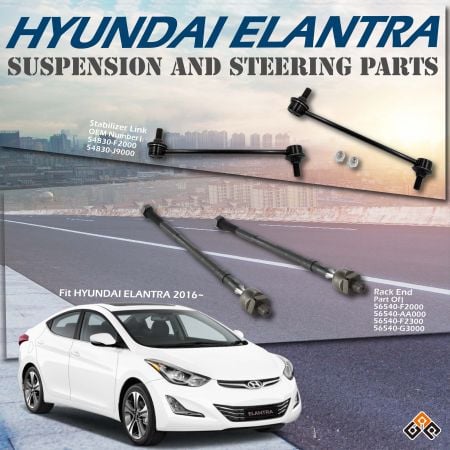 Hyundai Elantra & Kia e-Niro Rack end and sway bar links
Hyundai Elantra & Kia e-Niro Rack end and sway bar linksHyundai Elantra inner tie rod and stabilizer link 2016~ model
Read More -
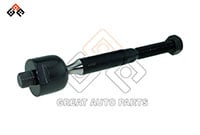 Dodge Durango inner tierod
Dodge Durango inner tierodNew product released for Dodge Durango 16 ~ & Jeep Grand Cherokee 16~, Made In Taiwan with high quality, we offer 2 Years or 50,000 KM warranties, conditions applied.
Read More -
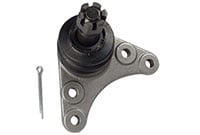 Front ISUZU D-MAX ball Joint
Front ISUZU D-MAX ball JointBall Joint fits ISUZU D-MAX I/ II 02~ , 原廠號碼有8-97235-777-0 8-97365-018-0 8-98005-827-0 JBJ7534, Made In Taiwan with high quality, we offer 2 Years or 50,000 KM warranties,...
Read More

